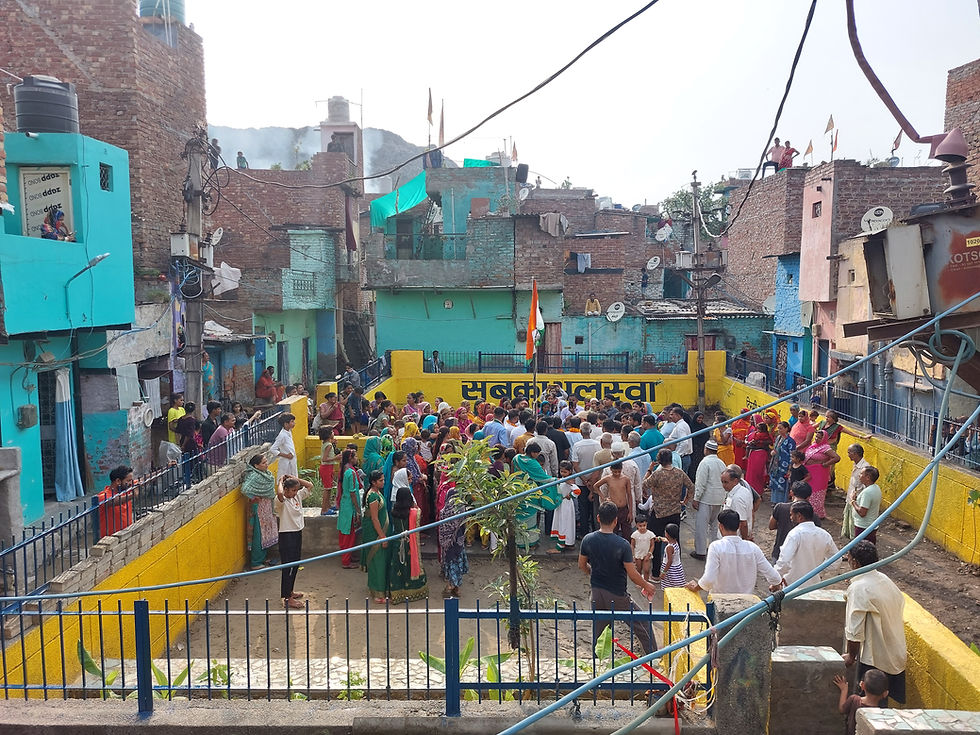Why should our waste lay waste to another place?
- Gunraagh Talwar
- Dec 13, 2021
- 2 min read
In December 2021, Gunraagh was awarded an opportunity to deliver a TEDx following the C40 Students Reinventing Cities Competition Win.
It is March 2020, and life as I knew it has come to a halt. Like many others, I was stuck at home with nothing to do but stay safe and look out my window. One day, I noticed something unusual - a colossal mountain in the backdrop of my neighborhood. You wouldn't expect to see a mountain in Delhi, would you? As it turns out, this mountain is actually one of three towering dumpsites designated for the city's waste disposal.
My name is Gunraagh, and I am a young architect and social innovator. This is the story of how I have been working to reimagine the dreadful realities of waste management in Delhi by bringing a human perspective to the issue.
What comes to mind when you think of waste? Is it stinky, unsanitary, and unhygienic? Now imagine decades of waste accumulating in a single area and slowly decomposing. In my neighborhood, at Bhalswa, one such dumpsite has rewritten the area's identity. It has polluted the soil, water, and air, choking the surrounding landscape.
Can you imagine living next to this atrocity? At Bhalswa, over 200,000 people are living and continuing to bear the brunt of these dire conditions, unseen by the city.
With the COVID-19 pandemic and the climate crisis, there is a newfound urgency to address this issue. Especially vulnerable are those who are currently disadvantaged. If we're looking for a better future, now is the time to act.
Since 2020, I have been working on the ground with affected communities to address their concerns. Among many others, Rita, Rohit, Uday, and Ram Nath feel vulnerable after repeated instances of the dumpsite falling over their houses. Rani is distressed by the growing state of substance abuse, and Dr. Neeraj is perturbed by the idea of running a healthcare center near a local dumpsite.
My team has been working to develop a range of solutions towards a Better Bhalswa. For the worst-affected communities, we have initiated a rehabilitative process. Navigating through several challenges and working with numerous authorities, we are creating inclusive public spaces with the community. In the process, we are endowing them with new skills and building capacity.
To uplift their state of living, we are proposing resettlement and promoting ideas of contextually-rooted green and thriving neighborhoods. New developments in the area have the potential to not only integrate but also remediate the landscape.
Our vision for a better Bhalswa is an equitable Delhi. We are working to develop place-based solutions and inform policy suggestions. However, we cannot take on the dumpsite alone.
A better Bhalswa is possible with your help, and the answer lies in taking responsibility. As an individual, we contribute around half a kilo of waste every day. Why is it that this little amount is so hard for us to manage? Perhaps the answer lies in asking the right questions. For starters, why should our waste lay waste to another place?



Comments